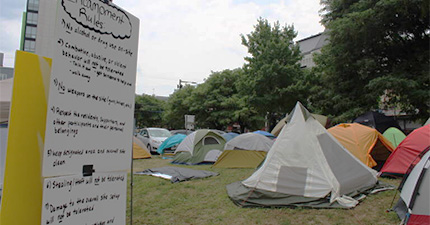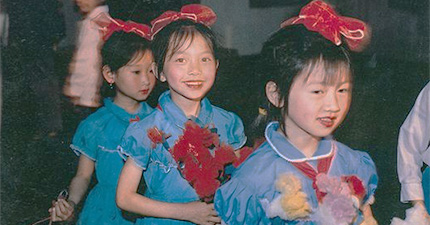“Like waste that has nowhere left to go, fatigue is produced as an everyday underhistory of efficiency and progress.” (Tom Melick)
“...all progress in capitalist agriculture is a progress in the art, not only of robbing the labourer, but of robbing the soil; all progress in increasing the fertility of the soil for a given time, is a progress towards ruining the lasting sources of that fertility.” (Karl Marx)
In my ten years of doing astrological readings, I’ve had to learn to tell the difference between someone who wants to change their life and someone who wants to maintain the structure of their life. Both choices are valid. People must be supported in what they want to do. So, I learned how to spot the difference.
People don’t change when they are angry or frustrated or even hopeful. Someone who is expressing precise rage, exponential frustration is not expressing a willingness to walk away from their situation but an incredible energy of wanting to pour more in. An angry person has hope that their anger will help them get what they need out of the situation that they are currently facing. To change, you must be willing to walk away. You must be willing to acknowledge the losses that you have already endured and sometimes suffer through more. Hope means that you don’t want to walk away, at least not yet. There’s only one emotion, if it can even be called an emotion, that can do that—fatigue.
Fatigue goes by many names. I’m tired! I’m sick and tired. Fed up. Disillusioned. Fatigue signals sadness, incredibly old sadness, because you feel fatigued when you have exhausted your body without receiving enough nourishment back. You have lost something important. You have hit your limits and cannot do more. You must change. You have no choice. You must walk away from the wall that you are currently hitting and seek out another way.
As Tom Melick writes in his A Little History of Fatigue, fatigue is the underhistory of labor. If the sixth house is the house of labor, then the twelfth house is the house of fatigue.
I think that the twelfth house is the house that astrologers have the hardest time describing because we are so used to describing each of the twelve places in the chart as actions. The houses are places where we go to do things. The third house is the house of connection and the ninth is the house of publishing. If you’re not here to do something then why are you here?
Immigrant bodies are not allowed to fatigue. Immigrant species, whether plant or animal, are seen as invasive—full of vigor, ready to overtake the environment, industrious, competitive, chaotically fertile. Immigrants are supposed to be aspirational and ruthlessly ambitious. If you’re not here to do something, if you are incapable of doing something, then why the hell are you here?
The twelfth house is the only house that solely exists to cause a suitable amount of friction between what you think you can do and the fact of your existence. Your fatigue prevents you from aspiring within the status quo. It is one of the main drivers of social change.
Tired people drive social change. Not angry people or hopeful people. Tired people. You don’t change your relationships when you are angry with your partner or your friends or your job or your city or when you hope that things can be different. You change when you are too tired of going through the motions and making do. You change when you are too tired to keep going the way you have been.
The planet that rejoices in the twelfth house of inaction and fatigue is Saturn. Saturn is the planet of reduction and limits, the slowest moving planet in the zodiac who appears to sit still for much of the year. The planet that reduces activity and induces rest thrives when it is placed in the place of fatigue. But Saturn is not the only planet that loves the twelfth house. We remember the planetary joys but forget that each of the twelve places have a co-signifier. The co-signifier of the twelfth place is Venus.
I think that Venus is an interesting planet because it’s the planet of love and grief. Venus expresses the very nature of love itself because it lives a half-life. Half of love is grief. Venus loves what is living for half of the time and loves what is dead for the other half.
Venus is not the planet of relationships but the planet of choices. She sits like a starving spirit at the intersection between ethics and desire. What is the right choice? What do I want? These questions interrupt each other. We have to cross into the underworld, choosing a sacrifice to re-emerge, in order to cross this intersection.
Merlick is primarily concerned about whether fatigue can be a shared affective state. Marx is concerned about material fatigue. As an astrologer who works with people, I think that fatigue is the main driver of change and that love is that state of being willing to admit that you are fatigued alongside other weary people.
Resting with another person isn’t easy. You have to trust them with your tired body, your vulnerable body, your needing body. They must not exploit your loss like the rest of the economic system but choose to grieve your losses with you. They must accept your existence as someone who isn’t here to do something but someone who must stop doing anything for just a little while. To rest with another person means that they accept your limits. They accept the missed calls, the forgotten appointments, the broken promises, the overwhelm, the withdrawal.
Can we share our fatigue? Is it a social emotion or a collective state? Can it be mobilized?
It already is. We could have depleted ourselves dry long ago if we could not share our fatigue. Rest is always social because isolation isn’t restful. We rest when we trust. We trust something—the structure of a bed or a chair, the protective closed door of our bedrooms, that someone else will pick up the slack for a while, that no one will forget us, that strangers on the train will not jump us when we close our eyes on a long commute. For as long as you have lived, you have never ever rested without trusting at least one person, place, or structure. If you have ever fallen asleep or taken a rest, then you have trusted someone else.
Don’t worry. Your body knows how to trust. You were born knowing how to rest.
If you did not need to rest, if you were indefatiguable, if you were constantly zany and on and thriving like a mechanical person, then you would not need to lean against someone else. You would not be capable of love.
So, Venus co-signifies the twelfth house of fatigue. We could not make decisions without fatigue. We would not love each other if we did not get fatigued and seek out rest by trusting other people. We would have no ethics or desires. If pleasure is the experience of giving what you have extra or receiving more than what you have available and trusting that exchange, then fatigue is the site of pleasure. Without fatigue, we would have no comfort.
The twelfth house is the place of fatigue, of self defeat, of hitting the wall, of meeting your limits. Venus is strong here. If you are weary, lean against someone you trust. Depend on another person and let the tired depend on you.
1 of 214
>>>


